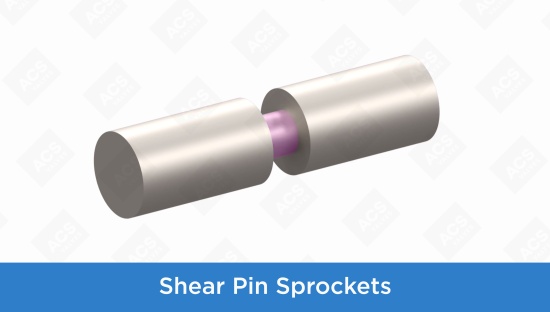
Frequent clogs. Wasted material. Time lost on cleaning and repairs. And literal holes pitted throughout the structure of your rotary valve.
That’s what you get when you buy the cheapest possible valve. Not to scare you or anything, but a cheap valve can cost you more money and hassle in the long run. The right valve, on the other hand, actually saves money and makes your job easier.
Does ACS Valves make cheap valves or expensive ones? Well, the honest answer is neither. It’s not fall-apart-in-your-hands cheap, and it doesn’t come studded with diamonds and a serving of caviar. The actual price depends on what makes the most sense for your conveying system.
Our goal is to give you the best possible value every time you order from us. What does that actually mean? You’re asking all the right questions.
Holy valve, Batman!
When valves aren't fabricated using the proper process, the quality can be a little… unreliable. Oftentimes that makes the machine itself looks rough and porous, like it wasn’t cast properly. With a valve like this, you might notice pitting, air holes or increased clearances where air can leak through.
This is especially bad if you’re conveying an abrasive product, because improper clearances create a kind of cyclone that sandblasts the holes and makes them worse as the rotor blades turn. That’s a big no-no in sanitary applications, because bacteria can proliferate in holes and pitted areas.
Considering it’s meant to be, you know, an airlock, your valve should only have two holes: one at the inlet and one at the outlet.
“Quality makes a huge difference. That’s why the entire manufacturing team at ACS is qualified or certified in some manner,” explains Megan Thompson, President and COO of ACS Valves. “There are inspections at pretty much every step in the process of assembling a valve. We make sure it has the proper clearances and high-quality machining and welding from top to bottom.”
Quick math. More options = more savings
When it comes to rotary valves, a big part of the value lies in customization. Here’s the deal: if a standard valve fits, it fits. There’s no need to upsell you. But often our customers have specific applications, materials and machinery that require a more tailored solution.
“If you just put a standard valve in an application that requires more options, it will wear out faster,” Thompson explains. Let’s say it’s an application with abrasive, coarse or corrosive material — in cases like those, you need coatings that protect your valve from premature wear.
In other cases, it could be an accessory that breaks up chunky material, a rotor that fine-tunes the flow of material, or even a unique valve that lets you clean food buildup in minutes instead of hours. Whatever the case, ACS experts know conveying systems well enough to recommend what works best.
Wait, so how does that save you money? Here are some common scenarios:
- Get greater longevity when your valve is equipped to handle tough materials.
- Waste less material with more precise flow.
- Spend way less time cleaning with easy-access features.
- Reduce maintenance with accessories that prevent material buildup and jamming.
- Avoid frequent repairs when sizing and options are chosen correctly.
Jenny, I’ve got your number (867-5309)
Customization is one major aspect of our service at ACS Valves, but there’s more to it.
“If a customer calls, we want to gather all the details of their application and pick the right valves, options and sizing,” says Thompson. “We don’t treat our customers like part numbers.”
In other words, we care. We will take the time to make sure everything is just right at every step, from the initial discussion to the final shipment.
Plus, our service doesn’t stop after you receive the valve. We provide consulting and aftermarket support to help you get the valve installed properly and walk you through any potential issues. If you ever have questions, we’re just a phone call away.
Bonus: NFPA compliance is free
We’re almost sorry that we have to point this out, but many of our competitors charge extra for NFPA compliance. We don’t. The standard configuration for our 6”–16’’ CI, MD and DR-S Series valves is fully compliant with NFPA standards. That’s not possible with every valve, but we’re upfront about your options and always happy to recommend more ways to improve your plant’s safety.
With all that in mind, we understand you might still have some questions about our rotary airlock valves, how they’re manufactured and how they benefit you. Contact a friendly rep to talk it out.


